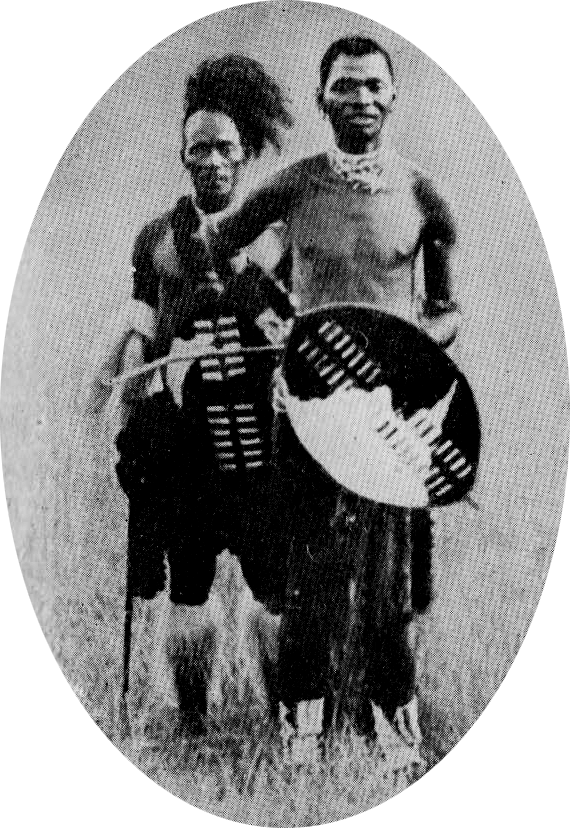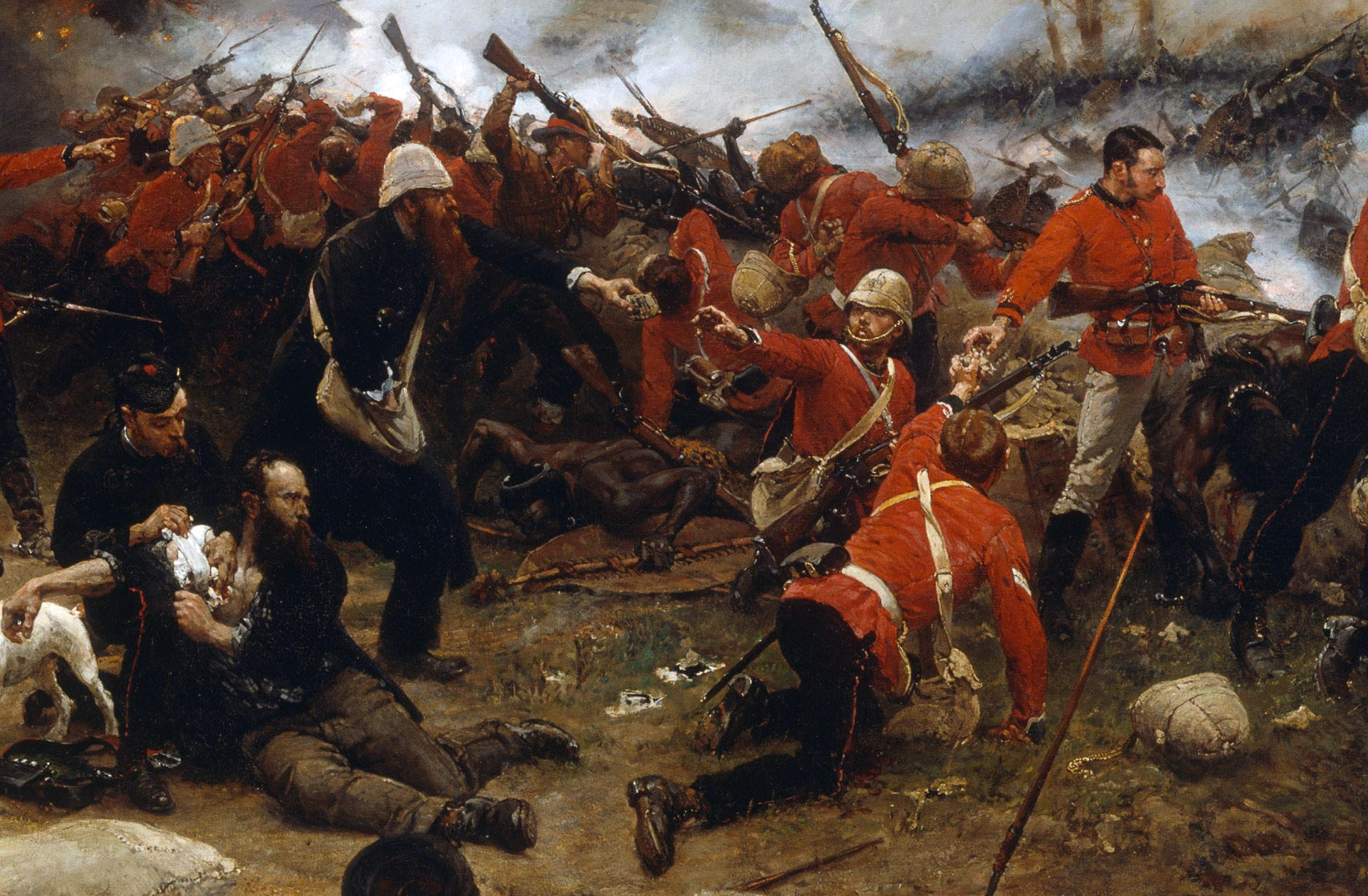|
Bhambatha
Bambata, or Bhambatha kaMancinza (c. 1865–1906?), also known as Mbata Bhambatha, was a Zulu people, Zulu chief of the amaZondi clan in the Colony of Natal and son of Mancinza. He is famous for his role in an armed Bambatha Rebellion, rebellion in 1906 when the Tax per head, poll tax was raised from a Hut tax, tax per hut to per head (£1 tax on all native men older than 18 – infamously called ukhandampondo), increasing hardship during a severe economic depression. Bhambatha claims that he was told to lead an armed rebellion by the de facto Zulu King Dinizulu. Dinizulu disputed this account and no convincing evidence for either story is available.P. S. Thompson, ‘Bambatha ka Mancinza (1865/6–1906)’, Oxford Dictionary of National Biography, Oxford University Press, Oct 200accessed 16 Sept 2015/ref> Early years It is unclear what year Bamatha was born due to no written records or birth certificates, but we estimate Bamatha was born in 1865, in Mpanza, near the town of Gr ... [...More Info...] [...Related Items...] OR: [Wikipedia] [Google] [Baidu] |
Bambatha And Helper
Bambata, or Bhambatha kaMancinza (c. 1865–1906?), also known as Mbata Bhambatha, was a Zulu chief of the amaZondi clan in the Colony of Natal and son of Mancinza. He is famous for his role in an armed rebellion in 1906 when the poll tax was raised from a tax per hut to per head (£1 tax on all native men older than 18 – infamously called ukhandampondo), increasing hardship during a severe economic depression. Bhambatha claims that he was told to lead an armed rebellion by the de facto Zulu King Dinizulu. Dinizulu disputed this account and no convincing evidence for either story is available.P. S. Thompson, ‘Bambatha ka Mancinza (1865/6–1906)’, Oxford Dictionary of National Biography, Oxford University Press, Oct 200accessed 16 Sept 2015/ref> Early years It is unclear what year Bamatha was born due to no written records or birth certificates, but we estimate Bamatha was born in 1865, in Mpanza, near the town of Greytown, Natal Colony. He was the son of Chief Mac ... [...More Info...] [...Related Items...] OR: [Wikipedia] [Google] [Baidu] |
Bambatha Rebellion
The Bambatha Rebellion (or the Zulu Rebellion) of 1906 was led by Bambatha kaMancinza (c. 1860–1906?), leader of the Zondi clan of the Zulu people, who lived in the Mpanza Valley (now a district near Greytown, KwaZulu-Natal) against British rule and taxation in the Colony of Natal, South Africa. Overview In the years following the Anglo-Boer War, British employers in Natal had difficulty recruiting Black farm workers because of increased competition from the gold mines of the Witwatersrand. The colonial authorities introduced a poll tax £1 () in addition to the existing hut tax to pressure Zulu men to enter the labour market. Bambatha had occasionally been in trouble with the Natal colonial administration, and the authorities suspected that he had joined with other chiefs in expressing discontent over the tax. He was summoned to Greytown, but, fearing arrest, did not attend. He realised that the administration was intent on crushing dissent and fled to Zululand to consu ... [...More Info...] [...Related Items...] OR: [Wikipedia] [Google] [Baidu] |
Colony Of Natal
The Colony of Natal was a British colony in south-eastern Africa. It was proclaimed a British colony on 4 May 1843 after the British government had annexed the Boer Republic of Natalia, and on 31 May 1910 combined with three other colonies to form the Union of South Africa, as one of its provinces. It is now the KwaZulu-Natal province of South Africa. It was originally only about half the size of the present province, with the north-eastern boundaries being formed by the Tugela and Buffalo rivers beyond which lay the independent Kingdom of Zululand (''kwaZulu'' in the Zulu language). Fierce conflict with the Zulu population led to the evacuation of Durban, and eventually, the Boers accepted British annexation in 1844 under military pressure. A British governor was appointed to the region and many settlers emigrated from Europe and the Cape Colony. The British established a sugar cane industry in the 1860s. Farm owners had a difficult time attracting Zulu labourers to wor ... [...More Info...] [...Related Items...] OR: [Wikipedia] [Google] [Baidu] |
Greytown, KwaZulu-Natal
Greytown is a town situated on the banks of a tributary of the Umvoti River in a richly fertile timber-producing area of KwaZulu-Natal, South Africa. History Greytown was established in the 1850s and named after the governor of the Cape Colony Sir George Edward Grey who later became Premier of New Zealand. A Lutheran church was built in 1854. A church bell which was brought to the town for the Dutch Reformed Church in 1861 to summon worshipers. The Dutch and English congregations were the centre of a series of theological arguments and the church bell was stolen and buried, only to be found 74 years later upon the construction of some cottages near the old church. A strikingly designed Town Hall was opened in 1904. In 1906 following a poll tax and other oppressive measures imposed on the Zulus, the Bambatha Rebellion took place. The final resting place of Sarie Marais is at Greytown. Sarie was a legendary Voortrekker woman who died, aged 37, with the birth of her 11th child and i ... [...More Info...] [...Related Items...] OR: [Wikipedia] [Google] [Baidu] |
Year Of Birth Uncertain
A year or annus is the orbital period of a planetary body, for example, the Earth, moving in Earth's orbit, its orbit around the Sun. Due to the Earth's axial tilt, the course of a year sees the passing of the seasons, marked by change in weather, the hours of daylight, and, consequently, vegetation and soil fertility. In temperate and subpolar climate, subpolar regions around the planet, four seasons are generally recognized: spring (season), spring, summer, autumn and winter. In tropics, tropical and subtropics, subtropical regions, several geographical sectors do not present defined seasons; but in the tropics#Seasons and climate, seasonal tropics, the annual wet season, wet and dry seasons are recognized and tracked. A calendar year is an approximation of the number of days of the Earth's orbital period, as counted in a given calendar. The Gregorian calendar, or modern calendar, presents its calendar year to be either a common year of 365 days or a leap year of 366 days, a ... [...More Info...] [...Related Items...] OR: [Wikipedia] [Google] [Baidu] |
Internal Resistance To Apartheid
Internal resistance to apartheid in South Africa originated from several independent sectors of South African society and took forms ranging from social movements and passive resistance to guerrilla warfare. Mass action against the ruling National Party (NP) government, coupled with South Africa's growing international isolation and economic sanctions, were instrumental in leading to negotiations to end apartheid, which began formally in 1990 and ended with South Africa's first multiracial elections under a universal franchise in 1994. Apartheid was adopted as a formal South African government policy by the NP following their victory in the 1948 general election. From the early 1950s, the African National Congress (ANC) initiated its Defiance Campaign of passive resistance. Subsequent civil disobedience protests targeted curfews, pass laws, and "petty apartheid" segregation in public facilities. Some anti-apartheid demonstrations resulted in widespread rioting in Port Eliz ... [...More Info...] [...Related Items...] OR: [Wikipedia] [Google] [Baidu] |
Mozambique
Mozambique (), officially the Republic of Mozambique ( pt, Moçambique or , ; ny, Mozambiki; sw, Msumbiji; ts, Muzambhiki), is a country located in southeastern Africa bordered by the Indian Ocean to the east, Tanzania to the north, Malawi and Zambia to the northwest, Zimbabwe to the west, and Eswatini and South Africa to the southwest. The sovereign state is separated from the Comoros, Mayotte and Madagascar by the Mozambique Channel to the east. The capital and largest city is Maputo. Notably Northern Mozambique lies within the monsoon trade winds of the Indian Ocean and is frequentely affected by disruptive weather. Between the 7th and 11th centuries, a series of Swahili port towns developed on that area, which contributed to the development of a distinct Swahili culture and language. In the late medieval period, these towns were frequented by traders from Somalia, Ethiopia, Egypt, Arabia, Persia, and India. The voyage of Vasco da Gama in 1498 marked the arrival of t ... [...More Info...] [...Related Items...] OR: [Wikipedia] [Google] [Baidu] |
Battle Of Mome Gorge
A battle is an occurrence of combat in warfare between opposing military units of any number or size. A war usually consists of multiple battles. In general, a battle is a military engagement that is well defined in duration, area, and force commitment. An engagement with only limited commitment between the forces and without decisive results is sometimes called a skirmish. The word "battle" can also be used infrequently to refer to an entire operational campaign, although this usage greatly diverges from its conventional or customary meaning. Generally, the word "battle" is used for such campaigns if referring to a protracted combat encounter in which either one or both of the combatants had the same methods, resources, and strategic objectives throughout the encounter. Some prominent examples of this would be the Battle of the Atlantic, Battle of Britain, and Battle of Stalingrad, all in World War II. Wars and military campaigns are guided by military strategy, whereas bat ... [...More Info...] [...Related Items...] OR: [Wikipedia] [Google] [Baidu] |
Dinizulu
Dinuzulu kaCetshwayo (1868 – 18 October 1913, commonly misspelled Dinizulu) was the king of the Zulu nation from 20 May 1884 until his death in 1913. He succeeded his father Cetshwayo, who was the last king of the Zulus to be officially recognised as such by the British. Zululand had been broken up into thirteen smaller territories by the British government after the Anglo-Zulu War, and Cetshwayo, and subsequently Dinuzulu, administered one of them. The British later realized the futility of breaking up Zululand into the territories and restored Cetshwayo as paramount leader of the territories. However, they left one of Cetshwayo's relatives, Usibepu (Zibhebhu), alone with his lands intact. On 22 July 1883, Usibepu attacked Cetshwayo's new kraal in Ulundi, wounding the king and causing him to flee. Dinuzulu's volunteers To contest the succession, Dinuzulu first appealed to the British, but received no response. He then offered rewards of land to Boer farmers of the Vryheid ... [...More Info...] [...Related Items...] OR: [Wikipedia] [Google] [Baidu] |
Zulu People
Zulu people (; zu, amaZulu) are a Nguni ethnic group native to Southern Africa. The Zulu people are the largest ethnic group and nation in South Africa, with an estimated 10–12 million people, living mainly in the province of KwaZulu-Natal. They originated from Nguni communities who took part in the Bantu migrations over millennia. As the clans integrated together, the rulership of Shaka brought success to the Zulu nation due to his improved military tactics and organization. Zulus take pride in their ceremonies such as the Umhlanga, or Reed Dance, and their various forms of beadwork. The art and skill of beadwork takes part in the identification of Zulu people and acts as a form of communication and dedication to the tribe and specific traditions. The men and women both serve different purposes in society in order to function as a whole. Today the Zulu people predominantly believe in Christianity, but have created a syncretic religion that is combined with the Zulu's pr ... [...More Info...] [...Related Items...] OR: [Wikipedia] [Google] [Baidu] |




